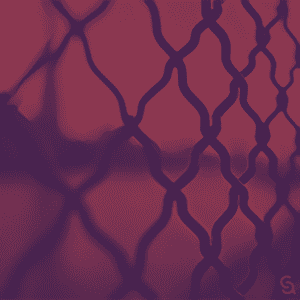
CSA Editor’s note: The following opinion piece is written by a Palestinian Christian using a pseudonym to protect their identity. Please note that the word “Jewish” in this essay is not a blanket term for all peoples of the Jewish diaspora; but refers to the specific people within this specific geographic region where the author is from, and reflects the way the word is used in their context. CSA holds a distinction between criticizing the Israeli Military Administration and leveling generalized, antisemitic critiques of the Jewish people who have experienced so much oppression. We hope there is room to highlight the human consequences of some of the political actions of the Israeli government while, at the same, recognizing the particular trauma experienced by the Jewish diaspora.
“If you marry me, you marry Palestine.” That was the bold statement I told Ruth [1] before asking her to marry me! To my great fortune, she joyfully agreed!
I was born in Jerusalem and grew up in Bethlehem. My family belongs to one of the seven historical clans of Bethlehem—which makes me Bethlehemite (in Arabic: talhami). Since I decided to commit my life to Christ back in 2010, I felt a strong calling to serve in the place I call home: Palestine. So, soon after Ruth and I got married in Latin America—where she is from—we moved to Bethlehem to serve with the Christian community there.
Merely two years after arriving in Bethlehem, however, we had to leave. We traveled to Latin America on a two-way ticket to visit Ruth’s family for three months, while waiting for her visa to be issued by the Israeli authorities. But the visa never came through. So, our three-month trip got extended to five years—and counting. Ruth’s visa application got rejected, and the reason the Israeli authorities gave us was that “she is married to a Palestinian from the West Bank.”
In addition to our visa application, we have a pending application for West Bank residency: to get Ruth the kind of ID that I have as a Palestinian from the West Bank. This process is known in Arabic as lam el-shamel (family reunification), and it allows Palestinians to live with their international spouses in the West Bank. We submitted a lam el-shamel application seven years ago to the Israeli military administration, which is in control of the West Bank, but until now, we have not received any reply. We are not alone. Many spouses of Palestinians have been waiting for their West Bank residencies for years: some for ten, and others for more than fifteen years, and counting.
Moreover, we have been trying since 2018 to visit Bethlehem as a family. We contacted Israeli embassies in Latin America to apply for a tourist visa for Ruth. But the moment they hear that she is married to a Palestinian, the reply comes back sharp and clear: “this is not under our jurisdiction, you need to contact the Israeli military administration.” The Israeli military, however, only receives applications for visit permits in Christmas and Easter for Christians, and in Eid al-Adha and Eid al-Fitr for Muslims. And for the last few years, the Israelis have stopped issuing these visit permits. So, we have not been able even to get a visit permit for Ruth just to visit the home she left in 2017.
Why is all this happening?
Palestinians have been saying for a long time that Israel maintains a system of discrimination and segregation. Recently, Israeli and international human rights organizations have seconded that by declaring that Israel is an apartheid state. Among these organizations are: B’tselem, Amesty International, and Human Rights Watch.
In the West Bank, Israeli apartheid is implemented via laws that privilege the Jewish settlers against the original inhabitants of the land: the Palestinians. So, if I were an Israeli Jew living in one of the 140 Israeli settlements built on land grabbed from the Palestinians, I would be allowed to live with my wife without a problem. Or if we were an American Jewish family, we would have been welcomed and even encouraged to live in an Israeli settlement in the West Bank, under the Israeli so-called “Law of Return.” However, since I am a Palestinian, my Latina wife is only issued a special kind of visa through the Israeli military, under which she is neither allowed to work, nor drive, nor move freely, nor use the airport, among other restrictions. Further, this visa is typically renewed every six months through the Israeli military administration, up to twenty-four months. After that, my wife needs to leave. An Israeli officer once told Ruth’s dear friend (who is also an international, married to a Palestinian): “We give you this visa to visit your husband; once your visa finishes, you need to leave.” This is exactly what happened with us: Ruth’s Israeli-approved visit finished, so we left the country not to be able to return. We left our house, lost our jobs, and had to start from scratch in a new place.
What do we do as committed Christians in such a context?
A few weeks ago, I had the privilege of being with a group of distinguished theologians and scholars in a conference on Christian Zionism. After several days of intense thinking and discussions about Israeli settler-colonial apartheid—and its Christian theological legitimization—one scholar left the room bursting into tears. Later, she shared with some of us how desperate and hopeless she felt in the face of Zionism. A Palestinian pastor then reminded us of Apostle Paul’s words: “For our struggle is not against flesh and blood, but against the rulers, against the authorities, against the powers of this dark world” (Eph 6:12 NIV).
Our struggle indeed is not against individual human beings, but against dark systems of oppression, apartheid, and discrimination. However, when afflicted and hardly pushed by these systems, our faith in a righteous and just God urges us to declare with Paul that “we are hard pressed on every side, but not crushed; perplexed, but not in despair” (2 Cor 4:8 NIV). In the face of oppression and injustice, we weep, struggle, and grieve. But we refuse to surrender to hopelessness. We remember that God is with us—Immanuel—and that God is coming to establish justice and vindication. This is what moves us into action: as we wait in lament, we work for God’s justice and righteousness here and now.
Footnotes
[1] The assertion of biblical Ruth that “your people will be my people” (Ruth 1:16 NIV) resonates deeply with our story—hence the name.


